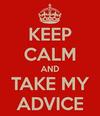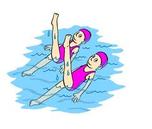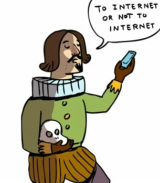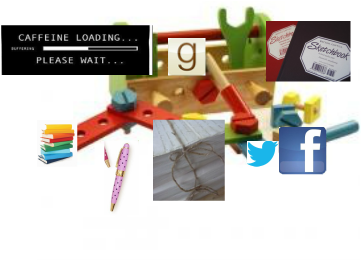|
I told myself I wouldn't enter anymore contests. I was done with this route, even though I've enjoyed them. The roads we travel have a funny way of leading us where we're meant to be-- or we just tell ourselves this so it feels okay to end up where we do. I didn't enter #PitchWars last year (though I did participate in Pitmad) so I didn't really know what it was all about. You can click the link above if you'd like to find out. Basically, it's an amazing opportunity to work with a mentor-- someone who knows the ropes and wants to help you strengthen your writing (your writing that has already been edited and revised--so not your first draft) and take it to a higher level. Today, on Twitter, I saw people asking, why a mentor would give their time? I knew the answer even before reading the many replies. The writing community on Twitter is amazing. I've said before that I've never known another industry where the "competition" is also your strongest support. These people want to see you succeed. When one person does, others are genuinely happy for them. It's an amazing thing to be a part of and the fact that the mentors are willing to give that back, is not surprising to me. This is just one way I've seen the writing community give back over the last two years that I've been part of it but there are endless examples from Street Teams to giving reviews to just giving you a boost when you need one. The organization and time that goes into these things is huge---if you haven't thanked Brenda Drake for providing these opportunities, you should. I always think that we're very lucky to live in an age where so much is at our fingertips. Because of that, and because I want to share too, as others have shared with me, I'm posting some links to the sites I'll be hanging out on while I pour over my manuscript obsessively to make sure it's perfectly ready to pitch. Good luck to everyone. Writing tips at novelicious.com I just found this site via Facebook and Twitter but I like the tips and tricks. Brenda Drake's website will be visited frequently because it gives all the details, plus has the link to all the mentors. Click those links and check out their sites. For real. Who better to tell you what they want than the mentors themselves? A friend once sent me a small guide with excellent tips on how to go through your manuscript. It was from this fantastic and helpful site: Inspiration for Writers I already saw this on Twitter today but this is a link to the site that helped me write my synopsis Honestly, one of the most helpful things to do is visit sites of writers you respect. Most of them have blogs, tips, advice. Some of my favorite helpful sites are: Daily Dahlia (obviously) Jody Hedlund, Lauren Spieller, and Ava Jae And if you still have questions, concerns, worries, or wonders, it is not as scary as you think to reach out to anyone involved and just ask. In addition to being rather funny and charming, the people you'll meet are extremely nice. Just like one of us. ;)
I am in no way an expert on anything...like anything at all. But I have learned a few things in the last couple of years that I wish I had known when I started thinking I wanted to get an agent or publish a book. Most of the things I've learned seem like common sense, but surprisingly, in the excitement of getting recognition for something that is so personal, we often forget what we know is just good etiquette. Along with that, I've fallen into a few 'things' that I've been fortunate enough to have far smarter people than I help me navigate my way through. So here's a pieces of not-advice-but-something-like-it from someone who is still finding their way.  image via technorati image via technorati If you wouldn't say it to someone's face, why would you say it online? You would absolutely think that this is just an accepted truth. However, the internet gives us a certain anonymity (or so we THINK) and there are times when people type before they think. Don't do that.  image via keepcalm.co.uk image via keepcalm.co.uk The only way you get better is by listening to the advice of others. Not everyone, but someone. You have to choose a tribe of people that you trust. That you know want what's best for you, will be honest with you, and can handle you at your worst. If you have people like that, who will read your writing and be brutally honest, with the best of intentions, then trust them. At least enough to truly consider what they're saying.  image via picgifs image via picgifs No agent is better than the wrong agent. This one sucks but it's true. These people are entering a relationship with you. Would you go into a bad relationship, JUST to be in one? There was a time I would have said yes, but as you get older, you learn to care more about your own well-being, Writing is no different. You want someone to be your champion and I am completely convinced (most days) that the right agent is going to be worth the wait.  image via examiner.com image via examiner.com As in life, envy gets you nowhere. It's easy to be jealous when you hear an announcement from other writers or from agents you stalk- I mean follow. But the thing is, you don't know their story. You don't know how hard their fight to get to where they are was and most of all, if they got there, then they probably had some pretty phenomenal writing. It's too hard to get somewhere in this world if your writing doesn't rise above. So they deserve it and it doesn't make you deserve it less. And, their success doesn't lessen your chances or your talent.  Go with your own style. I've been trying my hand at plotting and it just doesn't work well for me. For the co-authored book I'm working on, yes. But for my own writing, I just can't do it. At least not yet. I like to get lost in my writing and having to plan it all out first, throws me off track. I can always go back and edit and make plot points along the way. As much as I hate the term, I'm a pantser at heart. That's not right or wrong. It's just what works for me. There's more. There's always more. But that's it for now. Nothing we do is foolproof. There's no list or step by step manual to succeed. There are things you can do to make the ride smoother but basically, you have to do what you should be doing in your life: be who you are, to the best of your ability and hope that good things come to those who wait...politely.
I used to spend time on Facebook. Then it was Pinterest. Now, it's all about Twitter. My best friend had a great status when she started Twitter: Twitter is my new Pinterest which was my new Facebook. I like Twitter. At the moment, I like it a lot because in 'real life' my husband is playing air guitar to Guns and Roses so it's probably better to be looking at the computer screen. I thought I'd see how my life compares to Twitter overall. I couldn't do a fancy Venn diagram like I'd make my students do at school because I don't know how to do that on Twitter, my website, or in real life. TWITTER LIFE
What's your favourite form of social media and why?
When I was little I would get out some paper and a pen or pencil and call myself a writer. What more could anyone need if they wanted to write stories? When my daughters want to write, they ask if I can get off the laptop, if they can use the iPad, or go onto the desk top computer. Lots of times, I tell them that they have to use the old fashion method of paper and ink. I think there's power in this for them. As a writer, there is still something that moves me about writing the words that fumble around in my brain down on a piece of paper and reading over it, realizing that it's become something more than jumbled words. We can backspace and delete on our laptops but I believe pen to paper will always have value. That can be another post.
When I was in high school I got a very nice Smith Corona typewriter. When something really mattered, I'd type up a final draft on that. In University, I purchased my own computer and parted ways with my pen and paper unless necessary. As I've waded into the waters of "professional" writing (sharing with an agent, getting an agent, being on submission), I've come to realize that there are many more tools necessary for today's aspiring authors. It's more than just the medium we use to get our words down; much more. In teaching (I teach elementary), we need to be very aware of (and hopefully utilizing) 'best practices'. This means that we are up to date on current research and information on how to facilitate student success. It is very similar in writing. It is not just paper, pen, a list of agencies to query, and some stamps anymore. What does today's writer need in their toolkit?
What else? What's important in your writing toolkit? What makes you stronger or more confident as a writer? |
Archives
May 2021
Categories
All
|




 RSS Feed
RSS Feed
